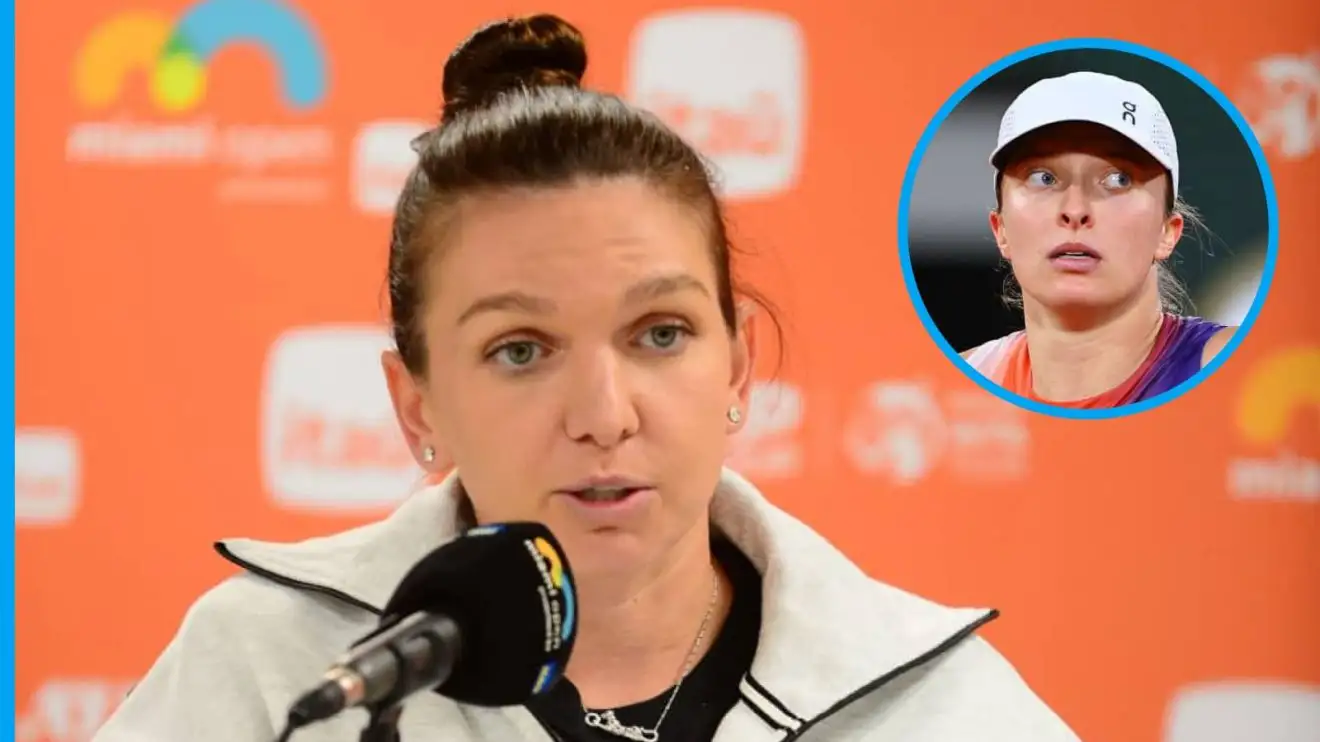
Iga Świątek, the four-time Grand Slam champion and former world number one, has finally addressed a controversy that has clouded her stellar career. Recent allegations surrounding her involvement in a failed drug test prompted the Polish star to speak out publicly. Świątek, who is known for her on-court brilliance and off-court humility, did not shy away from the subject, asserting her innocence and drawing clear distinctions between her case and that of Simona Halep, whose doping ban has dominated tennis headlines.
In a candid interview, Świątek explained the circumstances of her situation, expressing frustration at the misunderstanding and media speculation that followed. While she acknowledged the sensitivity of the topic, she remained firm in her commitment to clean sports and her belief in fair processes.
A Surprising Revelation
The controversy began when reports surfaced that Świątek had tested positive for a banned substance during a routine anti-doping check. However, the Polish star clarified that the positive test resulted from contamination, a scenario that anti-doping authorities recognize as a possibility. Świątek’s team submitted detailed evidence to support her claim, including documentation of her supplements and medications, which were analyzed for potential cross-contamination.
“I take my responsibility as a professional athlete very seriously,” Świątek said. “This is why I’ve always been diligent about what I consume. To find myself in this position was shocking and disheartening. I want to emphasize that I have never knowingly taken any banned substance.”
Świątek’s proactive approach included cooperating fully with the International Tennis Integrity Agency (ITIA) and undergoing additional tests to prove her compliance.
Drawing Parallels and Differences with Simona Halep’s Case
The timing of Świątek’s revelation coincided with the high-profile doping ban imposed on Simona Halep, the two-time Grand Slam champion from Romania. Halep was handed a four-year ban after testing positive for Roxadustat, a drug used to treat anemia, and for alleged irregularities in her biological passport.
Świątek addressed the inevitable comparisons to Halep’s case, insisting that the two situations were fundamentally different.
“Every case should be treated individually,” Świątek explained. “In my situation, it was clear from the start that contamination was a likely cause. Simona’s case involves different substances and more complex findings. I believe in fairness, and I trust the anti-doping authorities to make the right decisions based on evidence.”
Her remarks highlight a key distinction in anti-doping enforcement: intent versus inadvertent ingestion. While Halep continues to assert her innocence, her case has drawn criticism for its prolonged process and the severity of her punishment. Świątek, on the other hand, has sought to clear her name quickly by presenting a transparent account of her situation.
A Call for Better Education and Processes
Świątek’s case has reignited discussions about the challenges athletes face in navigating anti-doping regulations. Contamination from supplements, medications, or even food remains a significant concern, with many athletes unaware of how easily they can fall afoul of the rules.
“Education is critical,” Świątek emphasized. “Athletes need better guidance on how to avoid situations like this. I was fortunate to have a team that acted quickly and provided evidence, but not everyone has access to these resources.”
Świątek’s comments echo calls from other athletes and organizations for improved systems to protect players from unintentional doping violations. Suggestions include stricter regulations for supplement manufacturers, more rigorous testing protocols, and clearer communication between governing bodies and athletes.
Support from the Tennis Community
While Świątek’s revelation has drawn attention, the tennis community has largely rallied behind her. Fellow players, coaches, and fans have expressed their support, citing her impeccable track record and commitment to the sport.
“She’s one of the most professional players on tour,” said a prominent WTA coach. “I have no doubt that this was an unfortunate mistake, and I’m confident she’ll move past it.”
Świątek’s openness about the situation has also been praised. By addressing the issue head-on, she has demonstrated a level of transparency that is often missing in similar cases.
Continuing to Focus on the Court
Despite the distraction, Świątek remains focused on her career. She has started her 2024 season strong, aiming to reclaim the world number one ranking and add to her Grand Slam tally. Her ability to compartmentalize and maintain her performance on the court has been a testament to her resilience.
In her most recent matches, Świątek showcased the same dominance that has defined her career. Analysts have pointed to her improved serve and aggressive baseline play as signs that she is ready to contend for the biggest titles once again.
“My focus is always on improving and competing at my best,” Świątek said. “This experience has been a challenge, but it’s also reminded me why I love this sport and why I’ll continue to fight for what’s right.”
What Lies Ahead for Świątek and Tennis
Świątek’s case serves as a reminder of the complexities involved in maintaining integrity in professional sports. While her swift response and cooperation with authorities have helped mitigate the impact, the broader implications for anti-doping policies remain significant.
For Świątek, the road ahead is clear: continue to perform at the highest level and let her tennis do the talking. With her reputation largely intact and her determination unwavering, she remains one of the sport’s most compelling figures.
As she works to move beyond this controversy, Świątek’s story highlights the need for vigilance, transparency, and fairness in addressing doping allegations. Her ability to navigate this challenging period with grace and professionalism will undoubtedly serve as an example for athletes facing similar situations in the future.
In the end, Świątek’s commitment to clean sport and her focus on excellence underscore why she remains a role model, both on and off the court. For her fans and the tennis world at large, her resilience through this ordeal only adds to her legacy.
Leave a Reply